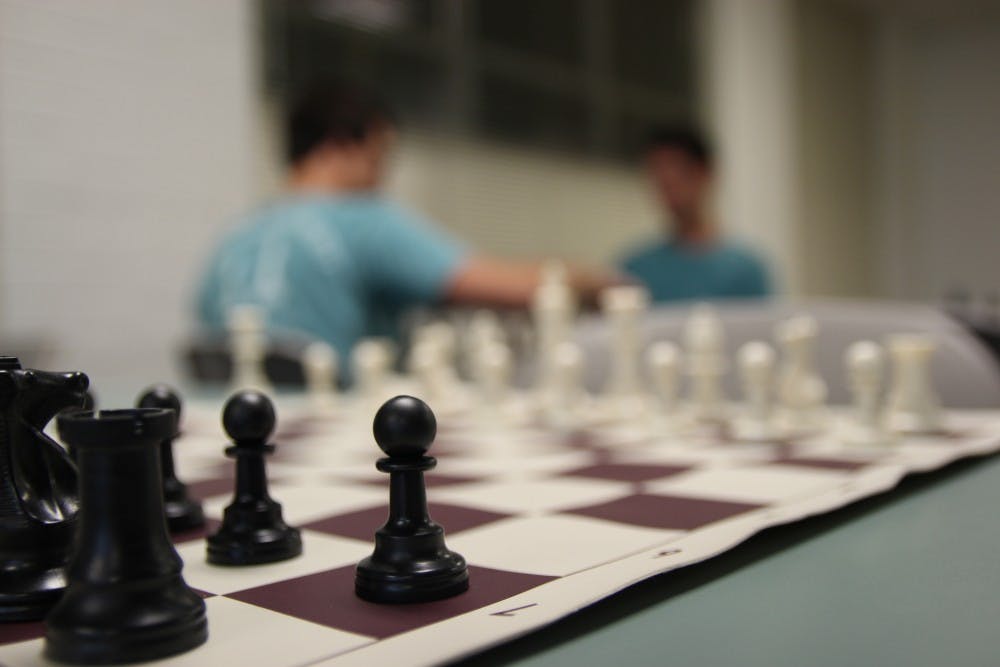Weekly chess society meetings are a relaxed environment. Classical music plays from a Pandora station while a number of chess games are ongoing. Members focus on the game before them, occasionally breaking their concentration to share a laugh with their opponent.
Engaging in activities that exercise the mind is beneficial to a student’s overall health and often, overlooked in today’s day-in-age. A typical college student spends most of his or her day attending classes, studying for exams and going to work, with their few hours of spare time they engage in sports, clubs and spend time with friends.
With an ample amount of activities to fill the day with, students can easily become overworked and stressed. Erin Trujillo, associate director and clinical director for ASU Counseling Services says in an email that the body needs a certain amount of stress to perform at its best, but that the amount of stress a body can take does reach a limit.
“Our bodies tell us when we move past our optimal level and into a place where we are impacted,” Trujillo says. “We’ll lose sleep, our eating patterns change and we’ll become either more or less emotional than our norm.”
Along with busy days many students find themselves engaging in more than one activity at a time. It has become rare for students to simply focus on one task at hand. However, Trujillo says there are certain activities, such as chess that provoke critical thinking and strengthen intellectual activity.
“When we are fully engaged in an intellectual activity, we are fully present in the moment,” Trujillo says.
Max Fechtmeyer, president of the Chess Society of Arizona State, has been playing chess for most of his life. Although he enjoys playing the game against his fellow club members, he praises the skills it has given him.
“It’s more of an endurance test and takes a lot of concentration,” Fechtmeyer says. “It’s such a good mental sharpening block that it should be focused on more.”
Brady Madden, director of Well Devil Coalition says in an email interview he stresses the importance of engaging in activities that promote a healthy lifestyle.
“A healthy lifestyle can promote greater concentration and focus, better memory and other mental benefits,” Madden says.
Madden shares that participating in activities such as playing chess or listening to TED Talks can sharpen the mind with new information and teach students how to strategize.
When Ben Jones started playing chess regularly he found himself appreciating other art forms such as classical music and NPR radio segments more.
“Chess really makes you slow down and take a couple steps back and think about what you’re doing,” says Jones, vice president of the Chess Society of Arizona State.
For students who are looking to sharpen their mind and increase their focus, the difference can come from simple activities such as playing a game of chess once a week or listening to NPR while driving in the car. Trujillo reminds us that these tiny activities can have a major effect on our overall health.
“All of these opportunities sharpen our minds through inspiration,” Trujillo says. “It keeps us balanced and intrigued.”




